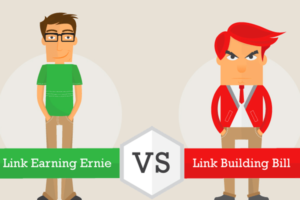Content Attributes
Positioning a site on Google requires maximum attention and the study of SEO on and off-page. One of the most popular techniques for positioning the site has always been link building, i.e. the possibility of obtaining backlinks on other websites that refer to one’s own.
Before 2012, this technique had undergone great use (and abuse), that is to say, that only the amount of links that directed to their portal to position themselves in Google counted. Since 2012, Google has understood the antiphon and has changed the algorithms, introducing controls to evaluate the quality of the backlinks and to penalize those who resort to junk links on sites without any reliability, only to position themselves on Google.
Still today, link building is an exceptional tool for positioning on Google but still requires some preliminary study to ensure that the links are of excellent quality and are positioned on sites that enjoy a good positioning on Google: otherwise, or in the case spam, you risk significant penalties.
Today a link builder has to focus only on quality and patience, to better monitor link building activity.
But how do you evaluate the links? How to understand when they are quality? Here are some useful tips for choosing links and sites where link building really well.
How to best evaluate the links Building? Some advice.
To obtain good results in terms of Google positioning, link building must be done using quality links. Here are some tips to understand when a link is a quality and when it is not (and therefore you must avoid it).
- Indexing the link. Although it is a trivial observation, keep in mind: if the page hosting the link is not indexed on Google, the consequence is that your site, in turn, will not be indexed. A link without indexing has zero effectiveness, always check the reference site well.
- Beware of no follow links, because they are links that have no power to position you on Google. An example of a no-follow link? The majority of those who are present in the forums, for example.
- Authoritativeness of the site that links to it. Obviously the authoritativeness of the site that links to it has an important meaning for evaluating the quality of the link.
- Insert the link naturally. Google considers suspicious and unnatural links that, for example, are inserted in the title of the page: insert them naturally in the text to avoid these problems. (Read this in-depth article on natural links ).
- Choose themed links. Google looks at the quality of the link and the content as a whole. So if he realizes that you have linked your site, which for example talks about the transfer market, starting from an article on a site that talks about shoes, he will evidently consider the link of poor quality because it is inconsistent. Google always looks at the quality of the content and the link, theoretically, is a deepening offered to the reader, so in these cases, you risk a penalty. Choose only the best sites that deal with topics similar to yours to host your links and you will avoid this type of problem.
- Amount of links on the page. If in an article you are the only one to have a link, then consequently the link juice, that is the strength of the link for positioning, is at its maximum. If, on the other hand, there are multiple links, its value consequently decreases.



